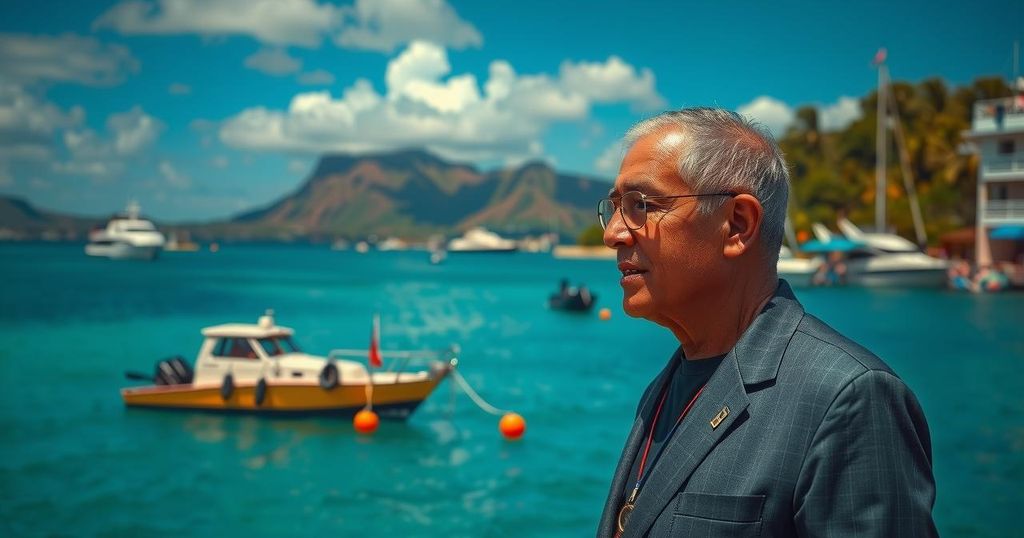Navin Ramgoolam: A Political Comeback in Mauritius
Navin Ramgoolam is set to become Mauritius’ prime minister for a third time after his party won the legislative elections. This veteran politician aims to unify a divided nation and restore economic stability amid rising living costs. His previous leadership tenure was marred by controversy, but he emphasizes resilience and change in his new campaign.
Navin Ramgoolam, poised to assume the role of prime minister of Mauritius for a third time following a significant electoral victory, is a prominent political figure with a controversial history. At the age of 77, Ramgoolam leads the Labour Party and has a political legacy spanning over three decades, rooted in a family that has played a pivotal role in Mauritius since its independence in 1968. His father, Seewoosagur Ramgoolam, is recognized as the founding father and first head of government of the nation. After two previous terms as prime minister, from 1995 to 2000 and then from 2005 to 2014, Ramgoolam’s recent success paves the way for his return after a decade marked by political challenges. His coalition, the Alliance of Change, effectively capitalized on public discontent regarding governance and economic issues, triggering a decisive legislative election win. Editorial commentary has emphasized that “Navin Ramgoolam’s comeback is much more than a political victory: it is a lesson in perseverance and resilience.” This perspective highlights his intention to unify a politically fractured nation that has been struggling with economic difficulties. During the electoral campaign, Ramgoolam accused rival factions of usurping control and manipulating government institutions, framing his candidacy as a response to perceived corruption and mismanagement. He pledged to prioritize democratic restoration, economic revitalization, and alleviation of the living costs during his campaign, connecting with an electorate deeply troubled by rising prices and political instability. Ramgoolam’s previous encounters with the law, including serious allegations of conspiracy and money laundering that he asserts are politically motivated, add complexity to his political narrative. Despite these challenges, he remains a central figure in Mauritian politics, holding his party’s leadership and striving to lead the country towards a more stable future.
The article discusses the political landscape in Mauritius, highlighting the return of Navin Ramgoolam as a transformative figure in the country’s governance. Mauritian politics has experienced turbulence over the years, particularly concerning economic crises and systemic corruption. Ramgoolam’s leadership is seen against the backdrop of his family’s significant political dynasty, which has had a lasting influence on the nation since its independence. Electorate sentiments focused on restoring democracy and tackling the pressing economic issues have played a pivotal role in his recent electoral success.
In summary, Navin Ramgoolam’s impending return to power represents a significant moment in Mauritian politics. His extensive political experience and promises of reform resonate with a populace yearning for stability and effective governance. Despite past controversies, Ramgoolam’s leadership is viewed as a potential unifying force intended to address the nation’s economic and political challenges, ushering in a new chapter for Mauritius.
Original Source: www.seychellesnewsagency.com




Post Comment